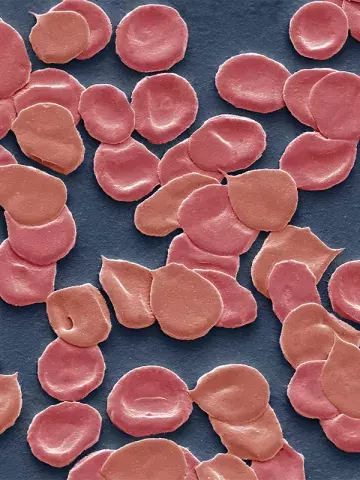Risk of anaemia in older people taking low-dose aspirin
By Michael Doris MB BS
Independent of any major bleeding, low-dose aspirin may contribute to incident anaemia and low ferritin in otherwise healthy older persons, according to results from a trial recently published in the Annals of Internal Medicine.
Professor Erica Wood, senior coauthor and Consultant Haematologist and Head of the Transfusion Research Unit in the School of Public Health and Preventive Medicine at Monash University, Melbourne, said, ‘This is the first large trial into the effect of daily low-dose aspirin on anaemia in healthy older adults. It is important because anaemia in older people is linked to poorer function and increasing fatigue, disabilities, depressive symptoms and cognitive problems.’
This post hoc analysis used data from the ASPirin in Reducing Events in the Elderly (ASPREE) trial: a double-blind, randomised, placebo-controlled primary prevention trial conducted in Australia and the US to assess the effects of daily use of 100mg of enteric-coated aspirin on the extension of disability-free life in healthy participants aged 70 years or older (or 65 years or older for US participants of Black and Hispanic heritage). For this anaemia analysis, the main measures were annual haemoglobin concentration and ferritin levels taken at baseline and three years.
Of the 18,153 participants included in the primary analysis, 9047 were randomly assigned to receive aspirin and 9106 to placebo.
During the median 4.7 years’ follow up, there were 51.2 events of incident anaemia per 1000 person-years in the aspirin group and 42.9 events per 1000 person-years in the placebo group. The estimated probability of experiencing anaemia within five years was 23.5% in the aspirin group versus 20.3% in the placebo group. The authors found the effect of aspirin on incident anaemia to be consistent across many subgroups, including age, sex, chronic kidney disease and smoking status.
The authors also found the mean haemoglobin concentration declined more over time in participants assigned to aspirin than placebo. In addition, more participants in the aspirin group had a serum ferritin level of 45 mcg/L or lower in the third year compared with placebo, with a greater overall decline in ferritin by 11.5%.
Professor John McNeil, also senior coauthor of the study, and former Head of the School of Public Health and Preventive Medicine at Monash University, said the results showed that aspirin ‘causes slow insidious bleeding that may not be recognised until a person seeks medical attention for symptoms of anaemia.’
Professor Erica Wood added that the study results ‘may help GPs identify older adults at higher risk of anaemia and who may benefit from regular monitoring,’ and reminded patients of the importance in consulting their doctor before starting or stopping daily low-dose aspirin.
Ann Intern Med 2023; doi: 10.7326/M23-0675.
Image © Steve Gschmeissner/SPL


